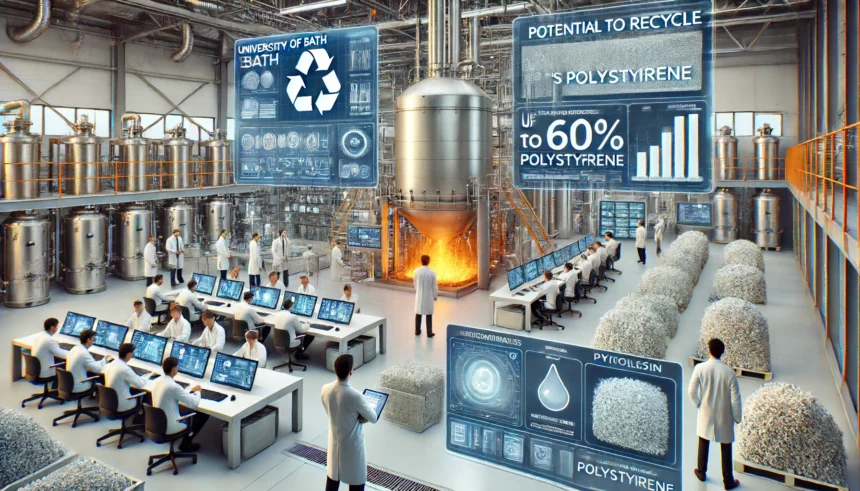Key Takeaways
- Efficient Process: Pyrolysis is both energy-efficient and economically viable.
- High Purity: Produces high-quality monomer grade styrene.
- Environmental Benefits: Cost-effective for reducing carbon emissions.
- Policy Support: Incentives could boost recycling rates.
Breakthrough in Polystyrene Recycling
A team of chemical engineers from the University of Bath in the UK and Worcester Polytechnic Institute in Massachusetts, US, have developed a groundbreaking method that could make recycling polystyrene both cost-effective and energy-efficient.
The Process: Pyrolysis
Their research, published in the Chemical Engineering Journal, describes a technique called pyrolysis. This process breaks down polystyrene into its basic components, which can then be reformed into new products.
How Pyrolysis Works:
- High Temperatures: The material is exposed to temperatures over 450°C in an oxygen-free environment, preventing ignition.
- Breakdown into Monomers: Polystyrene is converted into monomers, which are then purified.
- Reconstitution: These monomers can be reformed into new polystyrene.
Experts Weigh In
Dr. Bernardo Castro-Dominguez from the University of Bath explains, “Chemical recycling techniques are crucial in our field. We urgently need cost- and energy-efficient methods to break down plastics like polystyrene. Currently, less than 5% of polystyrene is recycled. Our work shows that up to 60% of today’s polystyrene could be replaced with chemically recycled material.”
Michael Timko, PhD, from Worcester Polytechnic Institute, adds, “Polystyrene is ideal for chemical recycling. Our process is both energetically efficient and economically viable. In terms of emissions, it’s comparable to energy conservation measures for reducing carbon footprints.”
Why This Matters
Challenges with Current Recycling:
- Degradation: Repeated heat treatments weaken polystyrene.
- Specialized Facilities: Most recycling centers can’t process polystyrene due to the need for specialized equipment.
- Transport Costs: Polystyrene’s bulk makes transportation costly, leading to low recycling rates.
The Pyrolysis Advantage:
- Energy Efficiency: Creating 1kg of new polystyrene requires less than 10 megajoules of energy, similar to running a microwave for 30 minutes.
- High Yield: The process converts 1kg of used polystyrene into 600 grams of 99% pure monomer grade styrene.
- Environmental Impact: The cost to reduce carbon emissions through this process is approximately $1.5 per ton of CO2, much lower than other methods.
The Future of Polystyrene Recycling
This innovative method could revolutionize how we recycle polystyrene, making it more attractive and feasible. Researchers suggest that policies incentivizing polystyrene recycling could enhance the economic appeal of this process.
















